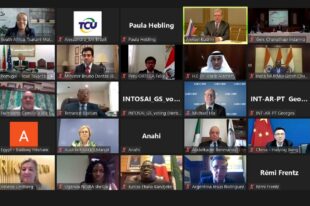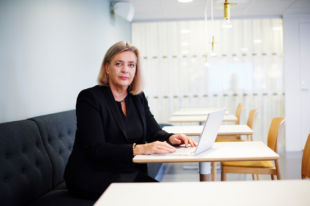United Nations- INTOSAI Symposium Engages Discussion on the Role of SAIs on Climate Action
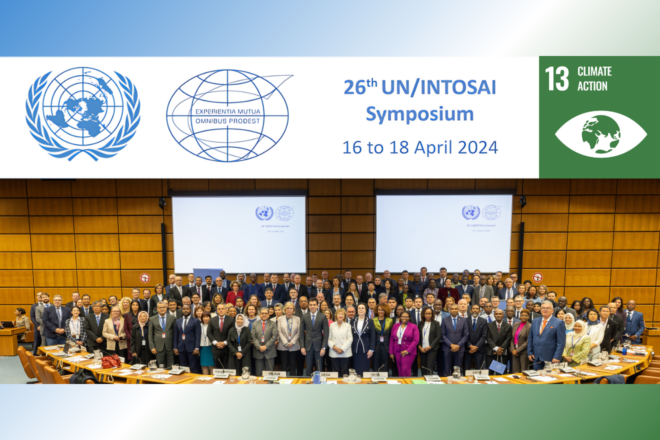
Author: Toni Gillich, INTOSAI Journal Secretary, U.S. GAO
The 26th United Nations(UN)/INTOSAI Symposium 2024 took place in Vienna, Austria, from 16 to 18 April 2024. Jointly organized by the UN and INTOSAI, the biennial symposia provide capacity building for Supreme Audit Institutions through the exchange of subject-specific experiences and information in all relevant fields of public sector auditing. The theme of this year’s event was the implementation of Strategic Development Goal 13 (SDG13) on climate action, and the role, contributions and experiences of SAIs. Nearly 200 participants from 80 countries across the INTOSAI community gathered for 2 and half days of robust discussion of an array of issues related to conducting audits that contribute to the climate agenda.
The Symposium was opened by the Secretary General of INTOSAI, Margit Kraker; the Chair of INTOSAI; Under-Secretary-General for Economic Development, Li Junhua, and Chair of the INTOSAI Governing Board, Bruno Dantas—President, SAI Brazil.
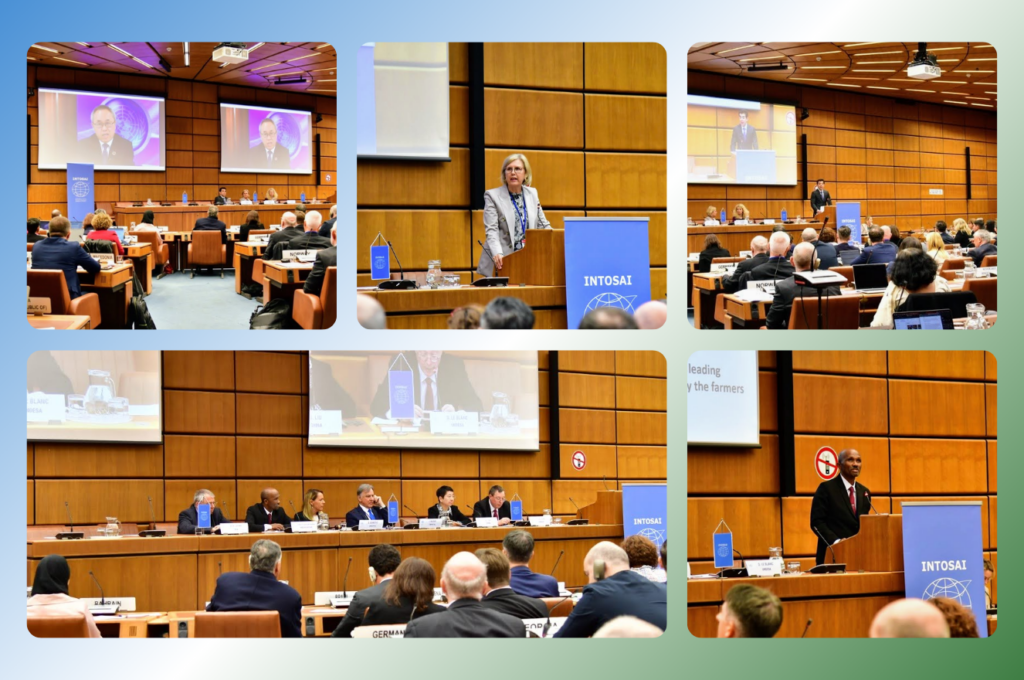
Day 1 featured multiple panels focused on the subtheme of SAI practices in auditing the impact of climate change. The discussions were wide-ranging, providing participants numerous perspectives on auditing the various impacts. Mr. de Dieu Rakotondramihamina, President of SAI Madagascar described the SAI’s first experience with a climate change audit, covering the negative impacts of water scarcity and soil erosion. Dr. Benitez Aldana of SAI Paraguay explained the key role citizen participation played in a climate and public health audit on highly-publicized issues related to petrol stations. Auditor General Klesic of SAI Croatia discussed how assessing the Croatian adaptation plan has helped the Croatian government take concrete actions. Furthermore, Auditor General Gutale of SAI Somalia discussed the creation of a performance audit unit, and highlighted pilot audits of climate-related matters such as water and crisis-recovery projects. Director General Sinha of SAI India underscored the complexity of the financial landscape for climate mitigation and the need for stakeholder involvement. Presentations from SAI Angola, SAI China, Indonesia, SAI Iraq, SAI France, SAI Portugal and SAI UK addressed additional key issues which supported the comprehensive assessment of critical issues.
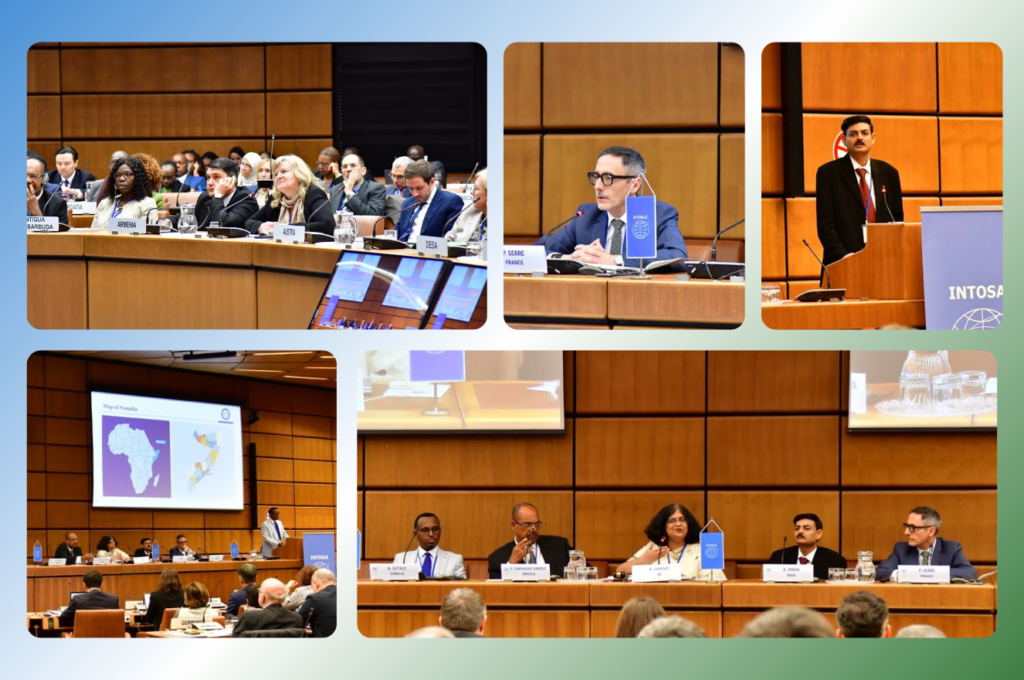
During Day 2, discussion covered two subthemes and raised important questions for SAIs to consider when undertaking audits related to SDG13 implementation. The first subtheme of the day examined the enabling conditions for auditing climate action. President Bruno Dantas, SAI Brazil, discussed the progress of the ClimateScanner initiative and noted that more training to increase capacity of auditors in auditing climate action and national assessments are underway. The results of these and other key efforts will be presented at the 2024 UN Climate Change Conference which convene in November 2024 in Baku, Azerbaijan. President Duisenberg described progress on climate targets and audits on electric car tax incentives and carbon storage under the North Sea aimed at reducing greenhouse gas emissions. The INTOSAI Development Initiative (IDI), SAI Egypt, and SAI Germany rounded out the discussion with several salient observations.
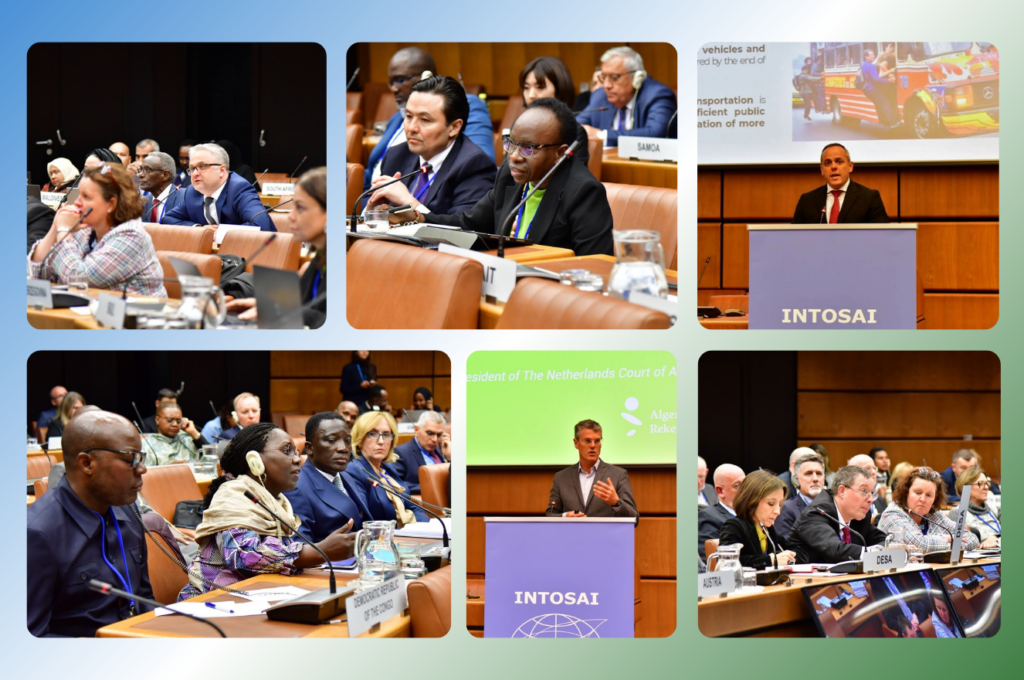
Proving inspirational to all participants, was discussion featured in a special panel on auditing national climate action in small island developing states (SIDS). Auditor General Pamela Monroe of SAI Jamaica highlighted ongoing audit work assessing the extent to which the government is on track its climate change adaptation plans and actions, citing the need for more data and resources to support additional work. Auditor General Niyazy shared experiences in climate auditing and underscored the challenges of auditing climate impacts in SIDS, from the perspective of the world’s lowest-lying country. Undeterred by the daunting nature of taking on climate audits in the face of very limited staff and expertise in this area, SAI St. Kitts and Nevis described how one of its first performance audits is covering climate issues and is supported by IDI. SAI St. Lucia described progress on SDG13 targets and key collaboration with the World Bank. Additional perspectives on capacity building and relevant points in regarding climate action came from IDI.
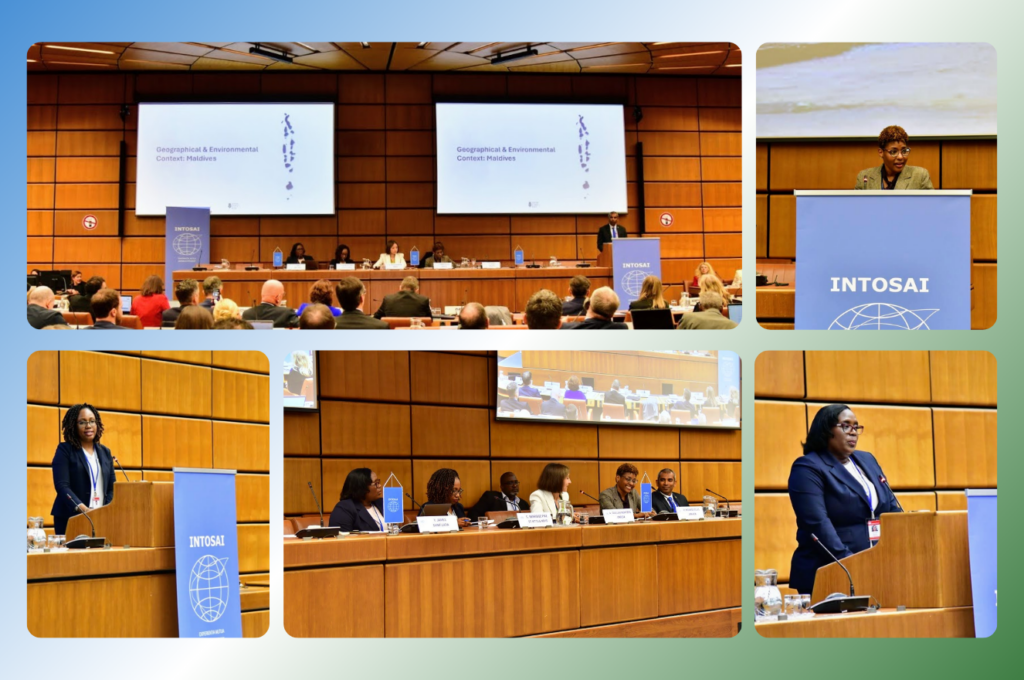
The third subtheme addressed impacts of climate change audits. Comptroller General Yalta of SAI Peru shared insights into how his office is tackling issues related to deforestation through compliance audits and anticipates future work in other climate action topics. Auditor General Macijauskas warned of the dangers of “green washing” which are actions that create the appearance of meeting climate action goals rather than genuine action and sustainability. Key observations were also shared by SAI Bulgaria, SAI Canada, the European Court of Auditors, and the INTOSAI Working Group on the Environment/SAI Finland.
The final day of the symposium began with a summary of the rigorous discussion carried out of the previous days. The participants adopted conclusions and recommendations of the implementation of SDG13 and the role, contribution, and experiences of SAIs, which strengthen climate action. The final and speaker, Åsa Persson, PhD, Research Director and Deputy Director, Stockholm Environment Institute and Adjunct Professor, Linköping University, encouraged participants to engage scientific academia and leverage tools they use to enhance climate-related audits. In closing, Dr. Kraker and Mr. Le Blanc of United Nations Department of Economic and Social Affairs recognized the both the unique and shared challenges of SAIs of all sizes and experiences and the need for new methods, tools and expertise to achieve the goal of SDG 13.
View the full photo album from the event here.

